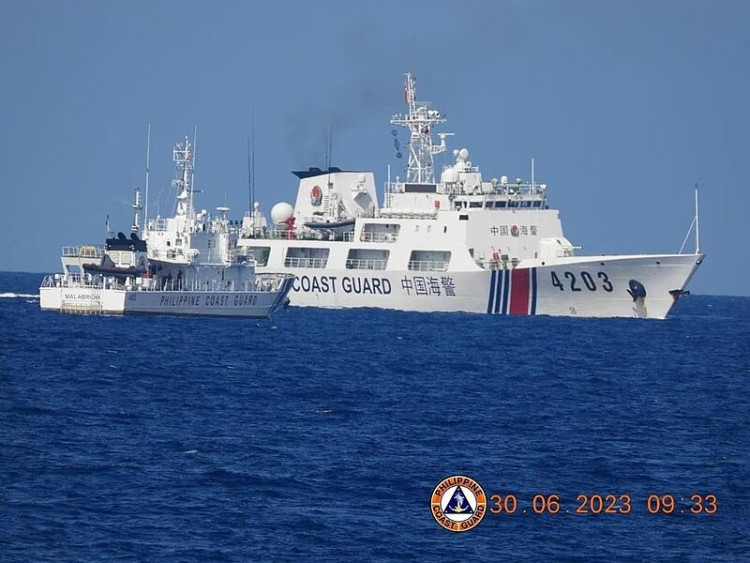China has condemned the recent deployment of U.S. missiles to the Philippines, asserting that such moves threaten regional stability. The criticism comes amid a separate but related maritime dispute in the South China Sea, where the Philippines faces mounting pressure from Beijing over contested waters.
On Friday, Chinese Foreign Ministry Spokesperson Lin Jian denounced the missile deployment, asserting it has exacerbated regional tensions. "Such a move by the US and the Philippines has triggered a political confrontation, heightening regional tensions and undermining peace and stability in the region," Lin stated during a briefing. He urged the Philippines to reconsider its alignment with U.S. military strategies and avoid compromising its own security interests.
The deployment in question involves a medium-range missile launcher that the U.S. stationed in the Philippines under the pretext of military exercises. This decision aligns with ongoing discussions between Washington and Manila to update their 1951 mutual defense treaty to address contemporary security challenges. China has called for the immediate withdrawal of these missiles, emphasizing that their presence escalates regional risks.
Simultaneously, tensions in the South China Sea have intensified. On Thursday, Beijing demanded that the Philippines "immediately withdraw" its coastguard vessel from Sabina Shoal, a disputed area in the Spratly Islands. This demand followed a Philippine operation where a helicopter airdropped supplies to the BRP Teresa Magbanua (MRRV-9701), a Philippine Coast Guard ship stationed at the shoal.
Gan Yu, a spokesperson for the China Coast Guard, criticized the Philippine resupply mission as "highly prone to causing unexpected incidents at sea or in the air." He urged Manila to cease what he described as "risky actions" and withdraw its vessel to avoid further escalation. China's defense ministry echoed this sentiment, warning Manila against testing Beijing's patience. "China is committed to properly managing differences through dialogue and consultation, but there is a limit to our patience," said Wu Qian, the ministry's spokesperson.
The dispute over Sabina Shoal, also known as Xianbin Reef by China and Escoda Shoal by the Philippines, has been a flashpoint in the South China Sea for months. Despite Philippine efforts to resupply the BRP Teresa Magbanua, Chinese vessels have consistently blocked these attempts, deploying a substantial naval presence to assert control over the area.
In response to the mounting maritime standoff, Philippine Coast Guard spokesman Jay Tarriela reported critical shortages of food and supplies for the vessel's crew. He accused the Chinese Coast Guard of using aggressive tactics, including deploying water cannons against Philippine vessels and surrounding the area with 40 Chinese ships to prevent further access.
The situation in the South China Sea has drawn international attention, particularly from the United States, which has reaffirmed its commitment to its treaty ally, the Philippines. During a recent visit to the Philippines, Admiral Samuel Paparo of the U.S. Indo-Pacific Command met with General Romero Brawner Jr., chief of the Philippine armed forces, to discuss security concerns and military strategies. Paparo indicated that American forces are prepared with "a range of options" to respond to increasing acts of aggression in the region, contingent on joint decisions with the Philippines.
As the diplomatic and maritime tensions escalate, the interplay between U.S. military deployments and regional maritime disputes underscores a complex web of geopolitical maneuvering. The U.S. and China continue to navigate a fraught landscape of regional security, with both superpowers asserting their influence amid ongoing disputes in the South China Sea.






